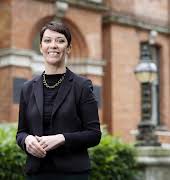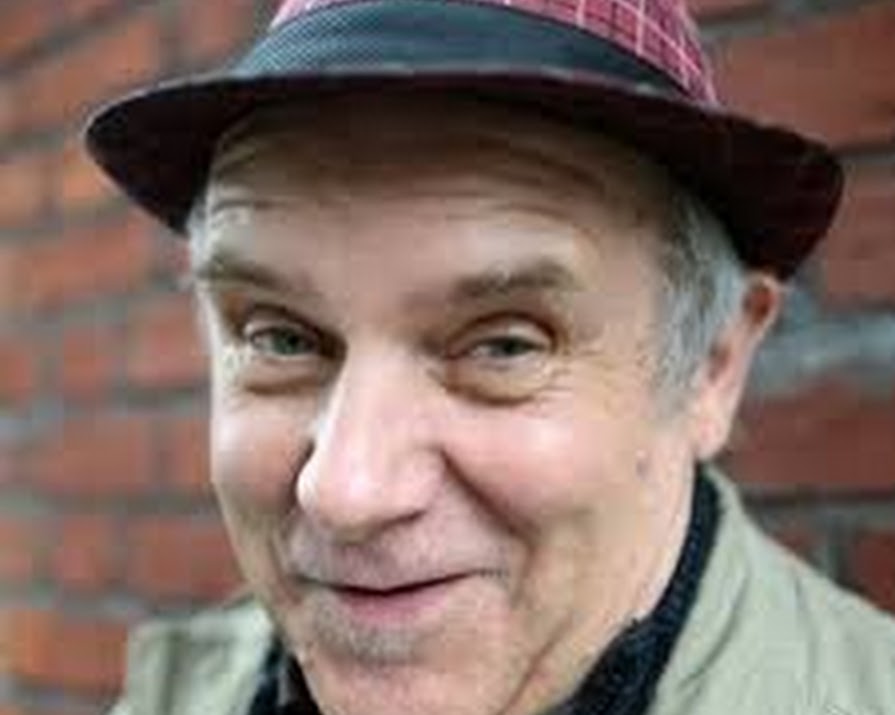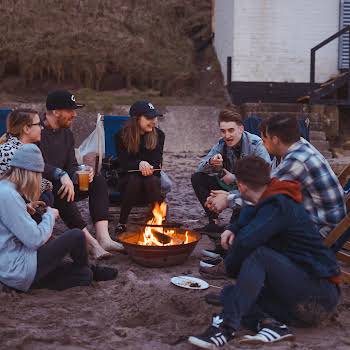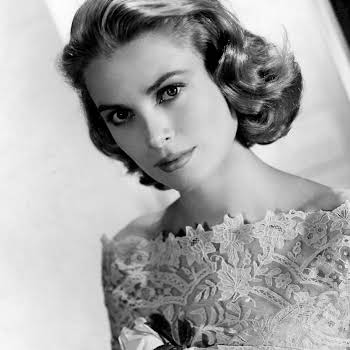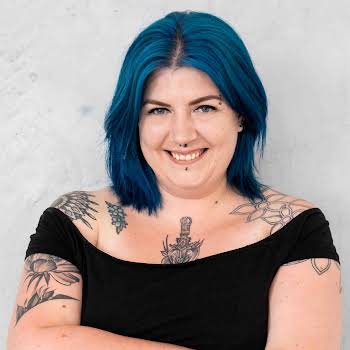
By IMAGE
27th Sep 2013
27th Sep 2013
The new issue of Image features an interview with legendary author Pat McCabe, author of The Butcher Boy, Breakfast On Pluto and the just published Hello & Goodbye; the conversation was so engrossing, in fact, that we thought we’d take the opportunity to offer the full, unexpurgated version in Q&A format via Image Daily. Let’s set the scene: in place of the bearded wild man of legend, we find a clean-shaven, soberly attired, wry and thoughtful gentleman, enjoying a cuppa and a choice historical tome in an upmarket Dublin hotel, a dextrous conversationalist entirely lacking in pretence and deeply passionate about the fine art of writing tall tales for a living.
Do you think that it’s important for writers to read extensively themselves?
Absolutely. There used to be a shame attached to it if you called yourself a writer, and there were writers you admitted hadn’t read. Now these might be obscure writers, but you’d be deeply ashamed to admit you hadn’t, you couldn’t call yourself a writer yourself… And maybe that’s right, because it shows in the long term that you’ve had an apprenticeship of sorts. Say you wanted to write about Athlone – you had to know that John Broderick had written before you, what he had done with it, if that’s going to be specifically your place, and you want to say something about it. Now, there’s plenty to be said for youthful arrogance, but at the same you need to know where you’re coming from – unless you’ve got another philosophy that blows everything out of the water, but that’s pretty rare. A year zero thing. Even look at Beckett, and you can’t help but see the stage plays of WB Yeats in there – everything comes from something else. Lennon and McCartney come from The Everly Brothers. The lightning bolt thing doesn’t happen very often.
Back in the €80s, when you were still a full-time teacher, you were part of a writers? group run by (fellow novelist) Dermot Bolger, who went on to publish your early work. Was that kind of support important when you’re trying to find your voice?
People can look at things retrospectively… There was a scene, it was pretty loose, a lot of it was quite miserable at times. It was very hard to get your books published, and even if you did get one out, chances were nobody bought it or even knew anything about it. It was hard to even get them into shops. It was a good apprenticeship, but you didn’t want it to last into your thirties or forties. It certainly was essential for me, as somebody who was a slow mover until they finally found out what they wanted to do. I was reading all these people, because I was very much conscious of the Irish literary tradition, but there was a modernist touch to me; there was a lot of reading, and a lot of experimenting, and meeting different people. Then again, we were pitched in that crossover between the end of one era and the beginning of another. You think now that we were still arguing about condoms in 1991 – I don’t really do embarrassment, but that’s pretty shocking.
Writing full-time wasn’t exactly an option for you back then…
I had other fish to fry. I was raising a family. People in our generation got married early, I was 25, 26, my wife was 22, it was different, we were living together – and we got a lot of shit over that. You’d think that people had better things to do, that they would have minded their own business. We weren’t causing anybody any trouble, but I was a teacher, and there was a lot of subterranean pressure being put on you; you could take a stand, but it wears you down, because there’s more of them than there is of you. It was different for our kids’ generation, and we made sure of that, because they sure as hell weren’t going to go through that. I don’t want to blame anyone, but a bit of moral courage would have gone a long way back then? or any moral courage whatsoever.
You’ve been rather dismissive of your first published novel, Music On Clinton Street (1986)…
I suppose there were things in it that worked, little aneurysms bursting linguistically that were indicating what I was after, which was more musical, because that was my background. I suppose you make your mistakes, and there’s plenty of them in that book. It’s good because you get to iron out all the creases. You put in the hours. You get more proficient technically. You persevere.
Do you think its important that a writer is disciplined when it comes to his craft?
Putting in the hours is everything, and it always was. I was never a great believer in waiting for the muse to arrive, although I’m not a complete work horse in that sense. When you put in those hours and establish a rhythm, that muscle gets developed, and that leaves space clear for the muse to work in. That happens rarely enough, but when it does happen you know what to do with it. I always wanted to write plays and screenplays, I didn’t want to be a poet, or a short story writer… I’m only just getting there now.
You’ve always been interested in the performance element; you read from your work regularly, and have mixed music and literature with Gavin Friday on many occasions.
I always thought there was a great anarchic spirit in the oral tradition, the vernacular and the songs, nowhere else has it. And there was an anti imperialist touch to that – we don’t have much, but we have our dignity and all that. That was one of the reasons I always liked Behan, you know? I mean, Behan made a balls of it, it many ways, but when he hit it, he hit it good. So he was a great influence on me, and I saw through him make sure you don’t fuck it up like he did, because maybe you’ve a tendency to go like him – you like the language, you like the performance, but just be a bit more cautious when it comes to everything else – and maybe that’s what he’s showing you, too. He should have lived twice as long as he did. I think he stands alone, in a way. He was raw.
A lot of people still think of you as an enigma of sorts – probably because of those early publicity pictures of you in shades and a trucker cap…
Those pictures were used for years? I had two small children, and a wife, and a very traditional teaching job, this thing (The Butcher Boy) broke and they said ‘We’re going to have to get photographs of you’ – and I had no photographs. And this Spanish friend had a load of caps, and I put on one of these caps, for a joke, and did a pose like ‘Oh I’m a hot rod racer motherfucker’ and he shot it. And this thing became real! But it was as far as you could get from the truth. But, in terms of publicity, it was a dream.
You’ve managed to weather both the hype that comes with Booker Prize nominations (he’s been nominated for The Butcher Boy and Breakfast On Pluto) and the inevitable critical backlash that follows, by letting the work speak for itself…
It was probably a good thing that I was in my thirties when it all happened, and I’d seen the pattern with other artists, first they’ll say you’re this, then they’ll say you’re this, and I said never mind any of it, and just carry on. So the philosophy was rock solid, and it would have taken a lot to knock me, not out of arrogance, but out of dedication. The small town thing is very significant in this, in that there’s so little going on that everything is people; there used to be constant footfall on the main street, you get your theatre from people, so just do what you’re naturally good at, constantly surround yourself with people, and don’t worry too much about anything else.
What about the solitary life of the mind, and all that? Do you need space to create?
The solitary thing is a different thing, you lock yourself away in a part of your head, some of that’s instinctive because my father would have been like that. The idea of the hermetic thing I always thought was Anglo-Saxon, and narcissistic, and more of a pose than anything. I just thought that if you do what everybody else does, you’re putting yourself in the mainstream of human behaviour, you’re not setting yourself apart, no more than anybody who has any kind of singular ability. There’s something strange about what I do, alright, but I wouldn’t overly mythologize it. I’ve been very clear about that from a very early age.
Some of your books have been critically maligned, many would say rather unfairly so. Were you aware of the critical tide turning? Did you even care?
It began to dawn on me, when the mood started to change, I thought ‘Do you know what this is? They don’t like me being funny.’ It’s all right when its savage, but when I’m having a rip-roaring snort of a laugh, and not really caring about an orthodoxy or hierarchy, which I never saw the point of, they (critics) weren’t happy. I wasn’t too bothered. The only thing you really worry about is that your money would dry up, but you’d have found some way out of it. If your hide is so thin, that you’re away off to weep when people criticize you, than how much did you believe in what you’re writing to begin with? That doesn’t mean that critics can’t be right, and that criticisms can’t be valid, but you take them on board and don’t repeat your mistakes again. As for retiring, well, I think its great that some people have that luxury; I suppose, without seeming corny, it’s the way you negotiate the world. You wouldn’t say to somebody who plays the guitar ‘I didn’t like that song, are you going to put that guitar away for two years?’ It just wouldn’t enter the picture. You perform every night. That’s what you do.
Your new book, Hello & Goodbye, consists of two separate novellas – they both crack along at a furious pace…
I took out nearly everything. It was so big to begin with, and then I was the judge for the IMPAC Awards and I thought ‘All these books are too big’ – they’re all 600 or 700 pages, and they’re all fine, and they’re all worthy, but I don’t have the time to read them, so how would anyone else just picking them up casually??. So when it came to Hello & Goodbye, I just thought ‘I’m gonna take everything out of these books’. And I just cut the fuck out of them. They’re intended for you to fly through them, there should be not fat on the bone, take it or leave it. It was an exercise in style for me, as much as anything else.
I like to think of them as a Pat McCabe Halloween double-bill. There’s no big message here, just two tales of terror, funny and horrible by turns…
If its about anything, it’s about the death of the supernatural, which is gone now, our generation were made very aware of this other world, and now, in a post-God world, we’re still conscious of it, but I wonder if that’s just fanciful, if we’re losing it. You get older, and you start to lose friends, and I don’t get any sign or signal from them, and the older I get the more wonderful I think it would be if there were ghosts – but the trick is that there aren’t, as far as I can see. Because there’s something comfortable in the twilight zone. I love a good ghost story. Sheridan Le Fanu is my favourite, much better than Stoker, because he deals with the psychology in his stories, they’re very, very modern.
You’re following in the grand tradition of Irish supernatural storytelling…
They’re meant to be ghost stories. They’re not trying to be anything else. They won’t bore, they come and go in a lightning flash. That’s what I want to do with literature now, because I don’t have the time to read huge, big worthy novels that are just okay – they’re not as great as they think they are half the time.
It’s never just been about the books – you’ve written for stage and screen, and even run your own festival, in Clones (Flat Lake). Is it important for you to mix it up a little?
I like to diversify. I’m really getting into theatre now, and that’s because I’ve got a couple of great directors, and I’ve never really had directors before; not only directors I like, but ones who share my philosophy. It’s interesting in what’s happening in Cavan and places like that, there’s now a generation coming through that I would consider kindred spirits, and they’re in positions, like Padraic McIntyre (Livin’ Dred Theatre Company), who’s directed three of my plays now, and each of them were exactly what I wanted. These works wouldn’t have been seen in the area, they wouldn’t have been overseen by local people or been of the high quality that these productions were, and that’s very exciting for me. I was never in this for money, that was always the philosophy, and to not have to rely on the novel to express yourself is exciting. That’s only one art form.
Neil Jordan was another key collaborator of yours. Looking back on his films of your books, it’s amazing how true to your voice they both are…
Not only that, but to stick to it when Hollywood wanted to get rid of it. They wanted to refine all this, and erase it, and he just said absolutely no way, and just gave them the back of his hand, and if you look at The Butcher Boy now, whatever it is, its an absolutely faithful adaptation. It’s full of integrity. Breakfast On Pluto was a different kind of movie, in a way it didn’t stand a chance, in that everybody became so bonded with The Butcher Boy that it affects what comes afterwards. The first-born child, and all that. I’m very happy with them both.
Hello & Goodbye by Pat McCabe (published by Quercus) is out now.
Photo by Bryan Meade
Derek O’Connor




